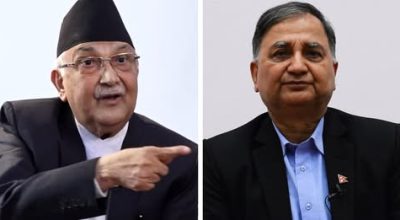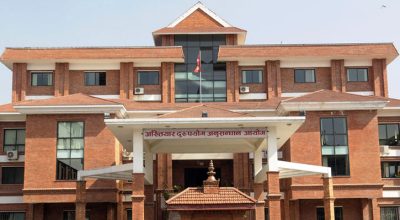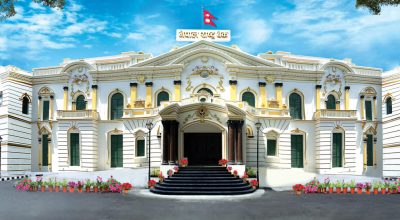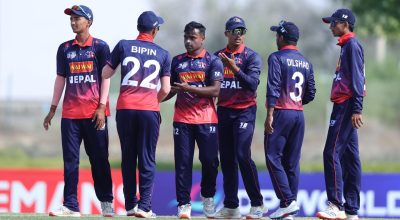
KATHMANDU: The Constitutional Bench of the Supreme Court has issued an interim order not to implement the citizenship ordinance and keep it as it is.
A constitutional bench of Chief Justice Cholendra Shamsher JB Rana, Justices Deepak Kumar Karki, Meera Khadka, Hari Krishna Karki and Ishwar Prasad Khatiwada has issued an order not to implement the ordinance.
The Supreme Court has ordered to keep the ordinance as it is, saying that the ordinance cannot be issued as an urgent matter as it has the jurisdiction of the parliament to make laws.
The Supreme Court has ordered to keep the ordinance as it is, saying that the jurisdiction to make laws does not belong to the executive but to the parliament and the ordinance cannot be issued as an urgent matter.
The jurisdiction to make laws is behind the parliament. “The power to make laws lies with the legislature. It has also been the practice of the constitution to give the executive the power to issue ordinances with effect for a limited period if something needs to be done immediately when the session of the legislature (parliament) is not in session during the operation of the state system,” the order said. “There are limits to what can be done. An ordinance cannot be issued beyond the limits set by the constitution.”
The order states that when the government issues an ordinance by bypassing the parliament for government facilities or to achieve certain political objectives, there may be undue interference in the rights and effectiveness of the parliament.
The Supreme Court has also written that the issue of making policy arrangements regarding the granting of citizenship is important and sensitive.
“The policy-making is an important and sensitive issue regarding the granting of citizenship. While genuine Nepali citizens must obtain a certificate of Nepali citizenship, non-Nepalese can be given a certificate of Nepali citizenship except for the process of granting naturalized or honorary citizenship by completing the legal process. Non-Nepalese people are not allowed to be given a certificate of Nepali citizenship,” point 5 of the order states, “Citizenship certificate can be issued in accordance with the provisions of the Constitution of Nepal and Nepal Citizenship Act, 2063BS and various issues as explained by this court. Apart from that, in case of adding new issues related to granting citizenship or changing the provisions of the existing act, it seems necessary to regulate and manage such issues on the basis of the law made by the legislature. From the very nature of the subject, this kind of subject does not seem to be considered “something urgently needed.”
The Constitutional Court has given such an order after hearing six writ petitions.
President Bidya Devi Bhandari had issued the ordinance on the recommendation of the Prime Minister KP Sharma Oli on May 23, the day after the dissolution of the House of Representatives.
The ordinance was issued bypassing parliamentary discussions haphazardly by KP Oli government in a bid to woe the Mahantha Thakur-Rajendra Mahato faction of the Janata Samajbadi Party (JSP), and to facilitate their entry into the Cabinet.











